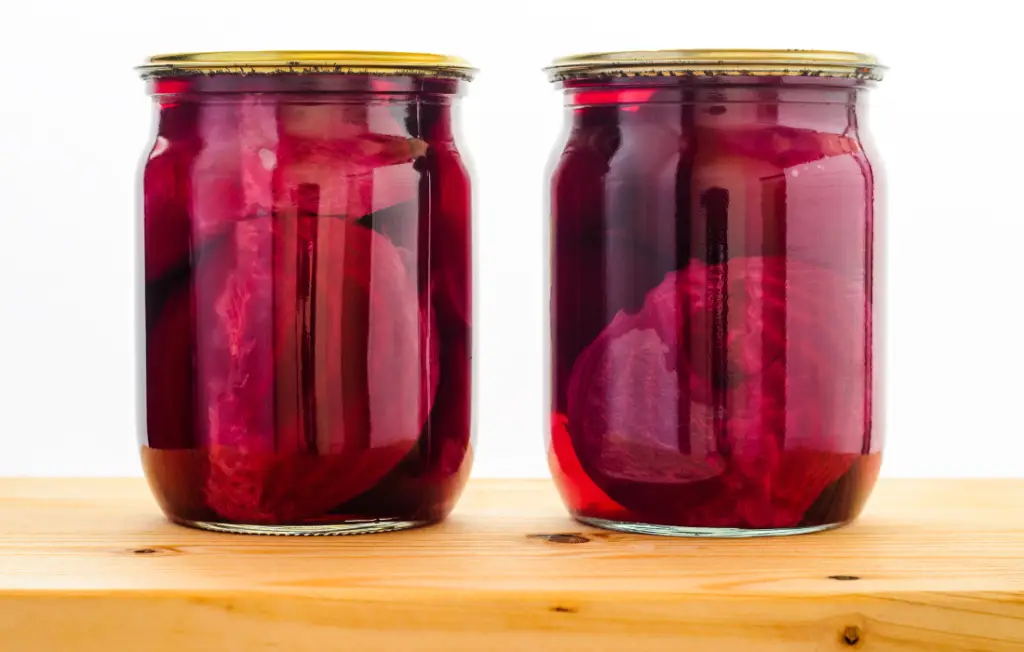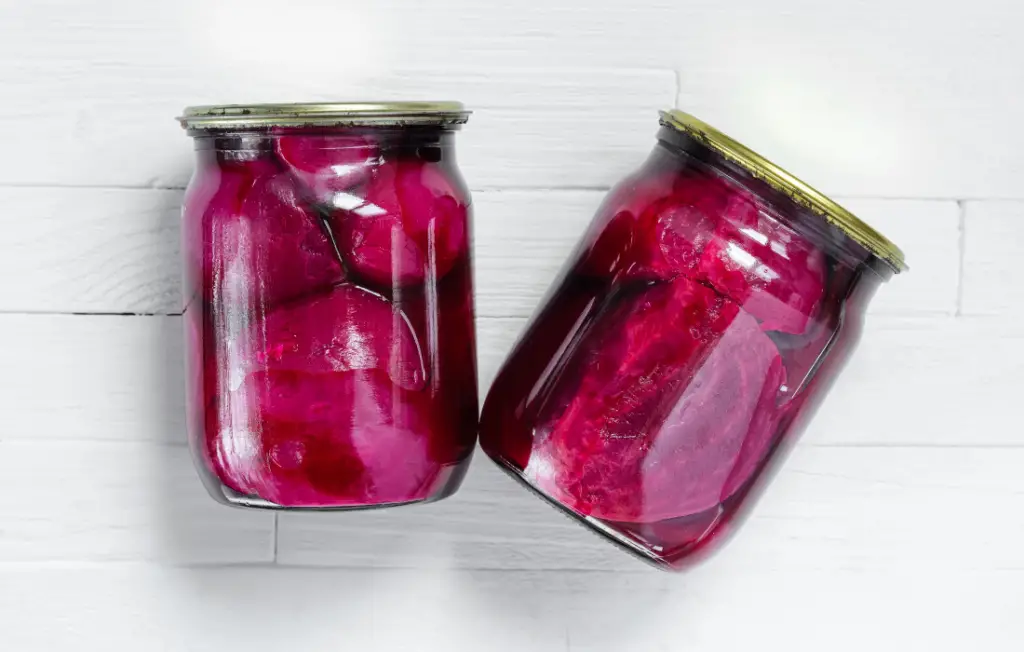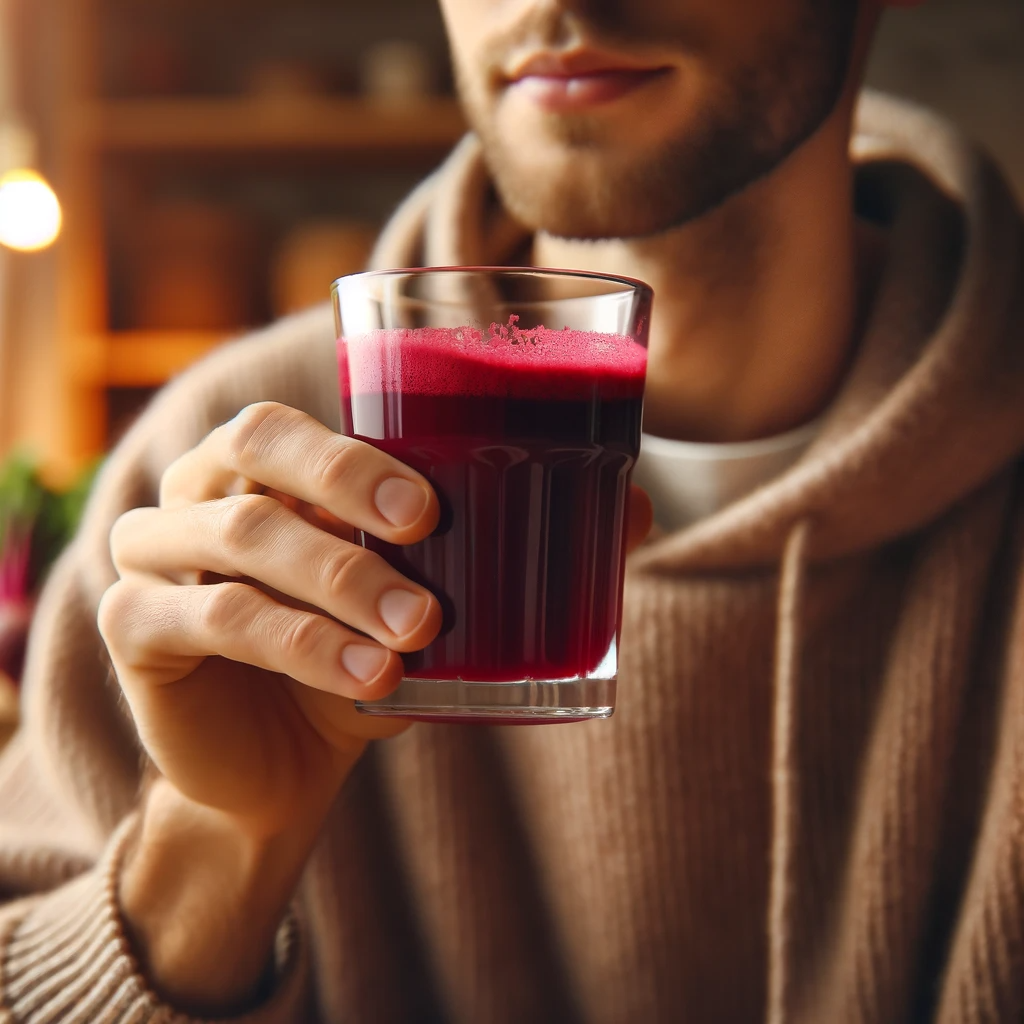Recently, a fellow foodie inquired about a topic that’s as intriguing as it is practical: Can you drink the juice from canned beets? This question, while simple, opens a door to a world of culinary possibilities and health insights. Here, we’ll explore the answer with a blend of culinary curiosity and nutritional science.
Yes, you can drink the juice from canned beets. This vibrant liquid, safe for consumption, is not only a byproduct of preserving beets but also a nutritional powerhouse. Rich in essential nutrients and devoid of harmful preservatives, canned beet juice offers a healthy and flavorful addition to your diet.
In this comprehensive guide, we’ll delve into the surprisingly beneficial world of canned beet juice, unraveling its safety, nutritional benefits, and versatile culinary uses. By exploring this underappreciated ingredient, we aim to enhance your culinary experience and enrich your understanding of its health implications, offering a clear, fact-based roadmap through the vibrant world of canned beets and their juice.
- Why Canned Beet Juice
- Cooking with Canned Beet Juice: Delicious Recipes
- Canned vs Fresh Beets: A Comparison
- FAQs About Canned Beet Juice
- How Should I Store Canned Beet Juice After Opening?
- What is the Shelf Life of Unopened Canned Beet Juice?
- Are There Any Health Risks Associated with Drinking Canned Beet Juice?
- Can Diabetics Safely Consume Canned Beet Juice?
- Does Canned Beet Juice Retain the Same Nutrients as Fresh Beets?
- Can Canned Beet Juice Help Lower Blood Pressure?
- Conclusion
Why Canned Beet Juice
Canned beet juice, often overshadowed by its fresh counterpart, holds an impressive nutritional profile that deserves recognition. This deep red liquid is more than just a by-product of canned beets; it’s a concentrated source of various nutrients essential for maintaining good health. Let’s delve into the nutritional value of canned beet juice, highlighting its key components per serving.

Nutritional Value per Serving (Note: The values are approximate and can vary based on brand and preparation method.)
| Nutrient | Amount per 1 Cup Serving |
|---|---|
| Calories | 70-80 kcal |
| Total Fat | 0g |
| Sodium | 50-100 mg |
| Total Carbohydrates | 18-20g |
| Dietary Fiber | 2-3g |
| Sugars (Natural) | 13-15g |
| Protein | 2-3g |
| Vitamin C | 4-6% of Daily Value |
| Folate (Vitamin B9) | 20-25% of Daily Value |
| Potassium | 300-400 mg |
| Magnesium | 5-10% of Daily Value |
| Iron | 4-6% of Daily Value |
| Antioxidants (Betacyanins) | Varied Quantities |
This table reveals that canned beet juice is relatively low in calories and contains no fat, making it an excellent choice for those monitoring their calorie intake. The presence of dietary fiber, although in smaller quantities, contributes to digestive health. The natural sugars present give it a sweet taste, negating the need for added sugars.
Canned beet juice is also rich in essential minerals like potassium and magnesium, which are crucial for heart health and muscle function. Folate, a significant B-vitamin, is abundant in beet juice, supporting cell growth and function. The vitamin C content, while not as high as in fresh beets, still contributes to immune system support and skin health.
One of the standout features of beet juice is its high level of betacyanins, the pigments giving beets their rich color. These antioxidants are known for their potential to reduce inflammation and are linked to various health benefits, including reduced risk of certain chronic diseases.
Beet Juice for Health: What Are the Benefits?
Beet juice, particularly from canned beets, is more than just a colorful addition to your diet; it’s a powerhouse of health benefits. This section delves into the various health advantages of beet juice, focusing on heart health, skin improvement, and blood pressure regulation, all backed by scientific studies.
Heart Health: One of the most celebrated benefits of beet juice is its positive impact on heart health. Beets are rich in nitrates, which the body converts into nitric oxide. Nitric oxide helps to relax and dilate blood vessels, improving blood flow and lowering blood pressure. A study published in the “Hypertension” journal demonstrated that drinking beet juice leads to significant reductions in blood pressure among adults. This effect is particularly beneficial for those struggling with hypertension, offering a natural, dietary approach to managing their condition.

Skin Health: Beet juice is also a boon for skin health, thanks to its high content of vitamins and minerals. The antioxidants present in beet juice, particularly Vitamin C, play a crucial role in skin care. They aid in collagen synthesis, which is vital for maintaining skin elasticity and firmness. Furthermore, the anti-inflammatory properties of beets can help in reducing skin inflammation and acne. A study in the “Journal of Agricultural and Food Chemistry” highlighted the role of beetroot in protecting skin cells from oxidative stress, further underscoring its benefits for skin health.
Blood Pressure Regulation: Regular consumption of beet juice has been linked to improved blood pressure regulation. The natural nitrates in beet juice are instrumental in this regard, as they help in naturally lowering blood pressure levels. A comprehensive study featured in the “American Heart Association” journal found that participants who drank beet juice experienced a reduction in systolic and diastolic blood pressure. This suggests that incorporating beet juice into your diet can be a proactive measure in maintaining healthy blood pressure levels.
Cooking with Canned Beet Juice: Delicious Recipes
Canned beet juice is a culinary secret waiting to be discovered by more than just health enthusiasts; it’s a versatile ingredient that can add a unique twist to various dishes. Here, we’ll explore some innovative and delicious ways to use beet juice in cooking, culminating in a special recipe: “Beet Root Juice Island Style”.
Beet Juice as a Natural Colorant: One of the most visually striking uses of beet juice is as a natural food colorant. Its vibrant red hue can transform ordinary dishes into visually stunning creations. From coloring pasta dough to giving a pinkish tint to homemade pancakes, the possibilities are endless.
Enhancing Flavors in Savory Dishes: Beet juice can also enhance the flavors of savory dishes. Its natural sweetness balances well with acidic and salty flavors, making it an excellent addition to salad dressings, marinades, and even soups. Try adding a splash of beet juice to your next tomato-based sauce or soup for an extra layer of flavor and nutrition.
Innovative Baking with Beet Juice: In baking, canned beet juice can replace some liquids in recipes like cakes or bread, adding moisture and a subtle earthy flavor. It’s especially great in chocolate cakes, where it complements the richness of cocoa while adding nutritional value.
Smoothies and Beverages: For a quick and nutritious drink, blend canned beet juice with fruits like oranges, apples, or berries. This combination not only tastes great but also boosts your smoothie’s nutritional profile.

Beet Root Juice Island Style
Beet Root Juice Island Style is a vibrant and refreshing tropical beverage that artfully combines the health benefits of canned beet juice with the sweet and tangy flavors of pineapple and orange juices. This no-cook recipe is a perfect blend of nutrition and taste, bringing a splash of island paradise to your glass.
- Total Time: 10 minutes
- Yield: 2 servings 1x
Ingredients
- 1 cup canned beet juice
- 1/2 cup pineapple juice
- 1/2 cup orange juice
- 1/4 cup coconut water
- Ice cubes
- Mint leaves for garnish
Instructions
- In a blender, combine canned beet juice, pineapple juice, orange juice, and coconut water.
- Blend until smooth and well combined.
- Pour the mixture into tall glasses filled with ice cubes.
- Garnish with fresh mint leaves.
Notes
- For a sweeter taste, you can add a teaspoon of honey or agave syrup.
- Freshly squeezed pineapple and orange juice can enhance the flavor.
- Adjust the amount of coconut water to reach your desired consistency.
- Prep Time: 10 minutes
- Cook Time: 0 (No cooking required)
- Category: Beverage
- Method: Blending
- Cuisine: Tropical/Island
Canned vs Fresh Beets: A Comparison
The debate between canned and fresh beets is not just about taste but also involves considerations of nutrition, convenience, and usage. Both forms have their unique benefits and uses, making them suitable for different culinary needs and preferences. Let’s delve into a detailed comparison of canned and fresh beets.
Canned vs Fresh Beets
| Aspect | Canned Beets | Fresh Beets |
|---|---|---|
| Nutritional Value | Retain most nutrients; slightly lower in certain vitamins due to canning process. Often have added salt. | Higher in certain vitamins, especially when eaten raw. No added ingredients. |
| Convenience | Pre-cooked and ready to use. Long shelf life. No need for peeling or chopping. | Requires cooking, peeling, and sometimes chopping. Shorter shelf life. |
| Usage in Cooking | Ideal for quick meals, salads, and recipes requiring pre-cooked beets. Beet juice can be used in various recipes. | Versatile in use – can be roasted, boiled, juiced, or eaten raw. Provides fresher taste in recipes. |
| Flavor Profile | Slightly altered taste due to |
FAQs About Canned Beet Juice
Delving into the world of canned beet juice raises many questions, especially for those new to this nutritious beverage. To clarify some common queries, we’ve compiled a list of frequently asked questions, covering everything from storage tips to health concerns. This section aims to provide easy-to-understand answers that are both informative and engaging.

How Should I Store Canned Beet Juice After Opening?
Once opened, canned beet juice should be stored in the refrigerator. Transfer it to a glass or plastic container if it’s not in a resealable can. Consume it within 2-3 days for the best quality and safety.
What is the Shelf Life of Unopened Canned Beet Juice?
Unopened canned beet juice typically has a long shelf life, often up to 2 years or the date indicated on the can. Store it in a cool, dry place away from direct sunlight.
Are There Any Health Risks Associated with Drinking Canned Beet Juice?
Canned beet juice is generally safe for most people. However, those with kidney stones or certain dietary restrictions should be cautious due to its oxalate and nitrate content. It’s always advisable to consult with a healthcare provider if you have specific health concerns.
Can Diabetics Safely Consume Canned Beet Juice?
While beet juice contains natural sugars, it can be part of a balanced diet for diabetics in moderation. However, it’s important for diabetics to monitor their blood sugar levels and consult their doctor.
Does Canned Beet Juice Retain the Same Nutrients as Fresh Beets?
Canned beet juice maintains most of the nutrients found in fresh beets, though some vitamins might be slightly reduced due to the canning process. However, it still offers significant nutritional benefits.
Can Canned Beet Juice Help Lower Blood Pressure?
Yes, thanks to its nitrate content, canned beet juice can help lower blood pressure. Nitrates convert to nitric oxide in the body, which helps to dilate blood vessels and improve blood flow.
Conclusion
In this comprehensive exploration of canned beet juice, we’ve traveled from the basics of its safety and nutritional value to the creative realms of culinary uses and have compared it with its fresh counterpart. We’ve also addressed some of the most pressing questions related to its consumption, storage, and health implications.
The journey through the vibrant world of canned beet juice reveals a remarkable blend of health benefits, culinary versatility, and convenience. Whether used in innovative recipes like the “Beet Root Juice Island Style” or simply enjoyed for its nutritional qualities, canned beet juice stands out as a valuable addition to a health-conscious diet.
Through this guide, we hope to have not only answered your initial query about the safety of drinking canned beet juice but also to have inspired you to view this humble ingredient in a new light. Here’s to discovering the joys and benefits of canned beet juice in your daily life!

